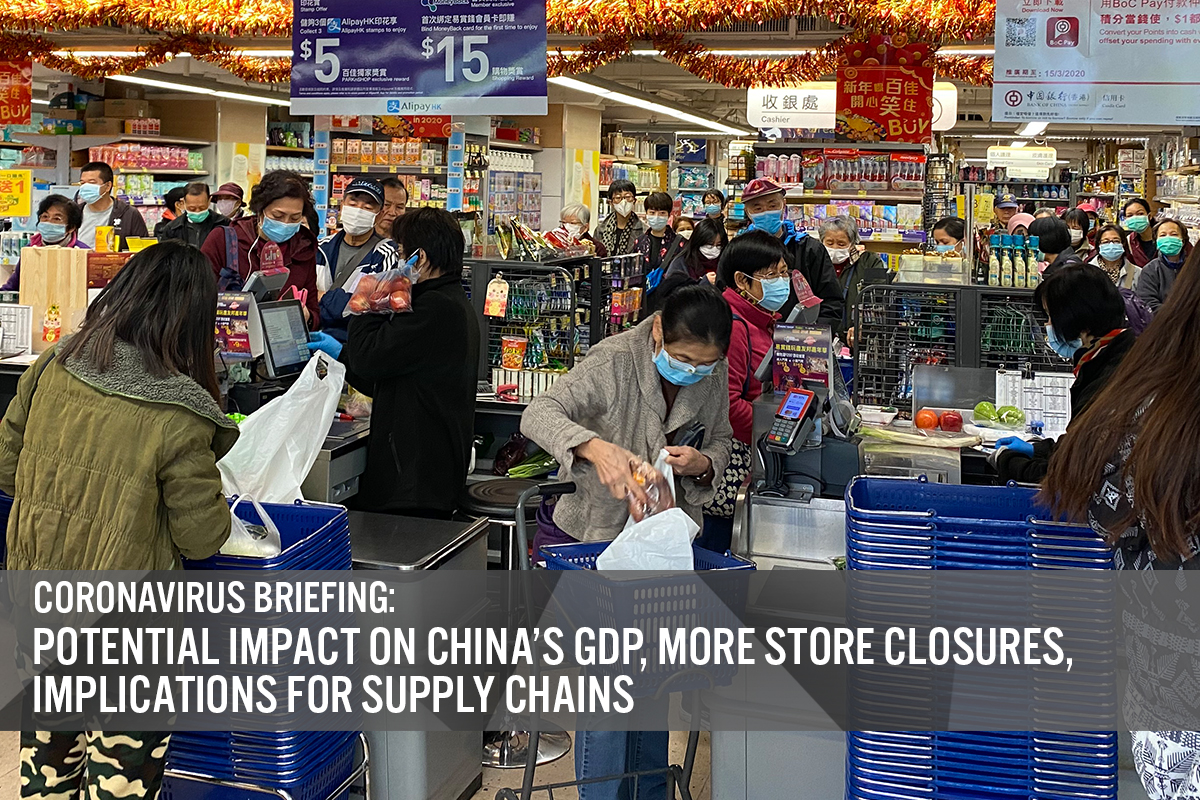
albert Chan
The number of people afflicted with the coronavirus recently passed the number of people who were afflicted with SARS during the 2002–03 outbreak. That slashed China’s GDP by two percentage points—which would be some $27 billion worth of productivity today. Moreover, the number of coronavirus patients is still growing.
We outline the possible economic impact of the coronavirus outbreak in China and will follow up with further estimates in subsequent reports.
Effect on Retailers and Brands
Several retailers in China have reduced or closed stores.
- Levi’s has closed about half of its stores.
- H&M has closed stores.
- Gap has closed five locations.
- Old Navy has closed three locations.
- American Airlines is suspending all flights to and from mainland China immediately through March 27.
- Delta will suspend service starting February 6.
- United will suspend service starting February 6 and expects to resume operations on March 28.